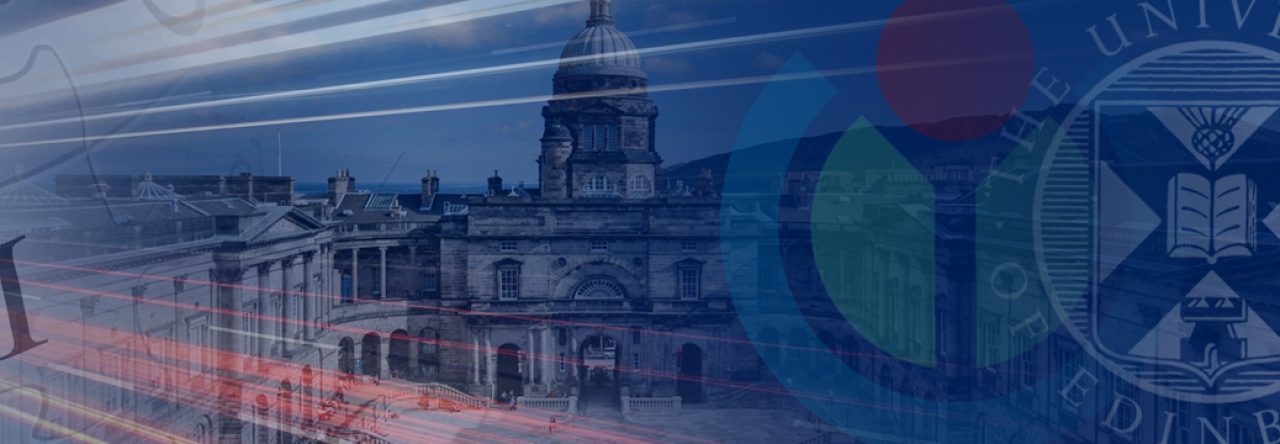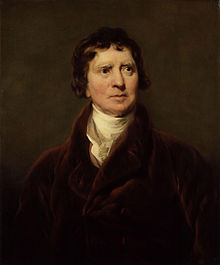As LGBT History month draws to a close this month, I wanted to pay tribute to a collaboration brought about through Siobhan Claude at the University of Edinburgh’s Staff Pride Network and my colleague, Lorna Campbell, who suggested telling the history of HIV/AIDS activism and awareness in Scotland on Wikipedia.
It seemed inconceivable that Wikipedia had so little on this important history and the people who fought long and hard against prejudice and myths surrounding the virus and did so much societal good in raising awareness and campaigning for treatment. Yet the largest open education resource in human history was largely devoid of any mention of the organisations and activists so pivotal in this history of Scotland.
We contacted Henry Gray at HIV Scotland and a date for an event was set. We would bring people together to edit Wikipedia and formed a worklist of new pages to create so that the generations to come would learn and understand the story of HIV/AIDS activism in Scotland. This is only a beginning so I have created a Navigation Box template to pull all these new pages together, make them easier to discover and to highlight the organisations and people we are still missing. This template has been added to the foot of all the new pages below. There is much more to the history of HIV/AIDS activism in Scotland (and the United Kingdom for that matter) to be told. We hope that this is only the beginning to honour and celebrate the pioneering and vitally important work that came before. Much more to do!
As a result of the HIV Scotland Wikipedia event at the end of January, we now have pages for:
Scottish AIDS Monitor
In 1983, after becoming aware of the spread of an illness affecting gay men in the United States, Derek Ogg set up Scottish AIDS Monitor in Edinburgh, along with Edward McGough, Nigel Cook and Simon Taylor, in order to inform and educate gay men about HIV and AIDS. The organisation was established before the first case of HIV was recorded in Scotland and three years before the first government AIDS awareness campaign. In addition to their original Edinburgh branch, by the late 1980s, the organisation had branches in Highland, Lothian, Tayside and Strathclyde. SAM was funded by private donations and public funding. The organisation was awarded £25,000 by the government’s Scottish Home and Health department in 1988 and also received funding from Strathclyde and Lothian Health Boards.
Initially SAM focused on raising awareness of AIDS and promoting safe sex among gay men, but the organisation expanded its activities to include all groups affected by HIV and AIDS, including homosexuals, heterosexuals, teenagers, drug users, sex workers and prison inmates. The organisation worked with the Genito Urinary Medicine unit at Edinburgh Royal Infirmary in order to ensure the information they provided was accurate and up to date. SAM’s activities included advocacy, awareness raising, advisory, support and prevention services. The organisation trained AIDS counsellors and hospital visitors and set up “Buddy” and HIV support groups. They also ran AIDS information phone lines in both Glasgow and Edinburgh, worked with drug counselling agencies, promoted safe sex and distributed free condoms. In 1994 SAM set up Gay Men’s Heath, the UK’s first dedicated health initiative for gay and bisexual men. The organisation was also instrumental in setting up Body Positive Scotland, a self help group for people living with and affected by HIV and AIDS.
SAM ceased operating in the West of Scotland later in 1995, and after funding was withdrawn by Lothian Health Board in 1996, the organisation closed down.
HIV Scotland
HIV Scotland is a registered charitable organisation based in Edinburgh, Scotland, established in 1995 as Scottish Voluntary HIV & AIDS Forum, that works to make policy and advocacy changes for people living with HIV in Scotland, PrEP users, and people at risk of HIV. George Valiotis was the Chief Executive Officer of HIV Scotland between 2012 and 2019 during which a key achievement was a successful implementation strategy for a new technology called HIV pre-exposure prophylaxis (PrEP), for which the organisation was awarded the British Medical Association Medfash prize for making Scotland the first nation in the UK to have it listed on their national health service. Nathan Sparling was appointed chief executive on 1st November 2018, and helped lead the organisation through a strategic review which led to their new 11-year Strategic Plan – #ZEROHIV. He announced he was leaving HIV Scotland in December 2020.
PHACE West
Project for HIV and AIDS Care and Education (PHACE) West was Scottish HIV and AIDS awareness organisation that was active in the West of Scotland between 1995 and 2006.
PHACE West was founded in November 1994 by Ken Cowan following changes in the Scottish HIV voluntary sector, and the following year attracted funding from four West of Scotland health boards. There was a widespread perception of an East Coast bias in the management of the predominant Scottish AIDS organisation Scottish AIDS Monitor, and inadequate West Coast services. A number of SAM staff joined PHACE West, including its director Maureen Moore.
The new organisation had a high-profile launch party in May 1995 at Glasgow’s Tunnel nightclub, featuring a performance by Dannii Minogue. In 2000 it expanded by opening an Aberdeen office, and becoming a national organisation, PHACE Scotland. In 2006 the organisation became part of the Terrence Higgins Trust, as its parent organisation PHACE Scotland completed a merger with the UK’s longest established HIV charity, allowing THT Scotland to provide services in Greater Glasgow and Clyde, Argyll, Ayrshire Arran, Lanarkshire, Grampian and Highland NHS Scotland board areas.
PHACE West provided a welfare rights service, Buddy Support Service and Night Owl crisis line, counselling, and condoms by post for people in rural areas. They ran the HAVEN, a drop in space at Ruchill Hospital. They also produced publications and websites on safer sex aimed at gay men, distributed condoms in LGBT venues, and ran the youth group Bi-G-Les for under-25s.
Derek Ogg
Derek Andrew Ogg QC (1954 – 1 May 2020) was a Scottish lawyer who, through the Historical Sexual Offences Pardons and Disregards Scotland Bill, campaigned for automatic pardons for gay and bisexual men with historical convictions of sexual offences that are no longer illegal in Scotland. In 1983 Ogg established the Scottish HIV and AIDS awareness charity Scottish AIDS Monitor.
Ogg’s activism started with his membership of the Scottish Minorities Group (later Outright Scotland) where in 1974, together with Ian Dunn, he organised the International Gay Rights Congress in Edinburgh, which later resulted in the establishment of the International Lesbian & Gay Association.
In 1983, after hearing about a disease affecting gay men in the United States, Derek Ogg, along with Edward McGough, Nigel Cook and Simon Taylor set up the Scottish AIDS Monitor to educate gay men about the risks of HIV and AIDS. He served on the board of Directors until 1994. In the 1980s much of his activism was around the issues of HIV and AIDS, where along with Scottish AIDS Monitor he was also involved in the establishment of Waverley Care through which the Milestone Hospice, the UK’s first purpose built hospice for HIV patients, was established in 1991.
Ogg was involved in the campaign to end the ban on gay sex in Scotland which was formally lifted in 1981 with the Criminal Justice (Scotland) Act 1980. He was also an activist against Section 28 (Clause 2A in Scotland) which was repealed in Scotland in 2000 and England Wales in 2003. In 2015 he was presented with a special award for Lifetime Achievement at the inaugural Scottish LGBTI Awards in recognition of his activism and legal work. He also campaigned for an apology from the Scottish Government in 2017 to gay and bisexual men who had been convicted prior to 2001, under discriminatory laws against same-sex sexual activity that had since been made legal.
Maureen Moore (activist)
Maureen Moore OBE was National Co-ordinator, then Director of Scottish AIDS Monitor from its inception in 1983.
After leaving SAM, Maureen went on to Chair the Scottish voluntary sector’s HIV and AIDS forum and the Board of Project for HIV/AIDS Care and Education (PHACE West) in Glasgow. This enabled her to continue lobbying for improved awareness of heterosexual transmission of HIV and better education and HIV prevention services for gay men.
In 1995 Maureen took over from Alison Hillhouse as Chief Executive at ASH Scotland where she supported the ban on smoking in workplaces in Scotland and the ban on tobacco sales to under 18s.
She was awarded an OBE for services to healthcare in 2006.
Ken Cowan (activist)
Ken Cowan ( 23 February 1955 to 11 November 1995) was a Scottish AIDS activist and founder/director of PHACE West, the project for HIV and Aids education in the West of Scotland.
Cowan successfully lobbied that patients be included on the carers sub-committee at Ruchill Hospital and was instrumental in the success of the West of Scotland’s awareness strategy for highlighting HIV prevention initiatives for gay men. He was also majorly involved in the development of Body Positive, the self-help agency for those living with HIV.
Cowan was diagnosed with HIV in 1991. He died aged 40 on 11 November 1995.
Eric Kay, in Gay Scotland‘s article on his passing, wrote that Cowan:
“was particularly skilful in fighting against the prejudice and dispelling the myths surrounding the virus. His eloquent delivery on the subject was always compelling, whether he was teaching young children or convincing politicians and Health Board funders. His determination ultimately brought about key policy changes which in turn have radically affected HIV Services in the West of Scotland.”




 Wikipedia is one of the most widely used means by which people get information, but it has lots of gaps and problems. Last semester, the residency collaborated with Professor Diana Paton and Lucy Parfitt at the University of Edinburgh History Society to begin a project to make it better. Participants were invited to improve public knowledge of Scotland’s Black history, and to help make Scotland’s deep connections to Atlantic slavery better understood. The controversial politician
Wikipedia is one of the most widely used means by which people get information, but it has lots of gaps and problems. Last semester, the residency collaborated with Professor Diana Paton and Lucy Parfitt at the University of Edinburgh History Society to begin a project to make it better. Participants were invited to improve public knowledge of Scotland’s Black history, and to help make Scotland’s deep connections to Atlantic slavery better understood. The controversial politician 
